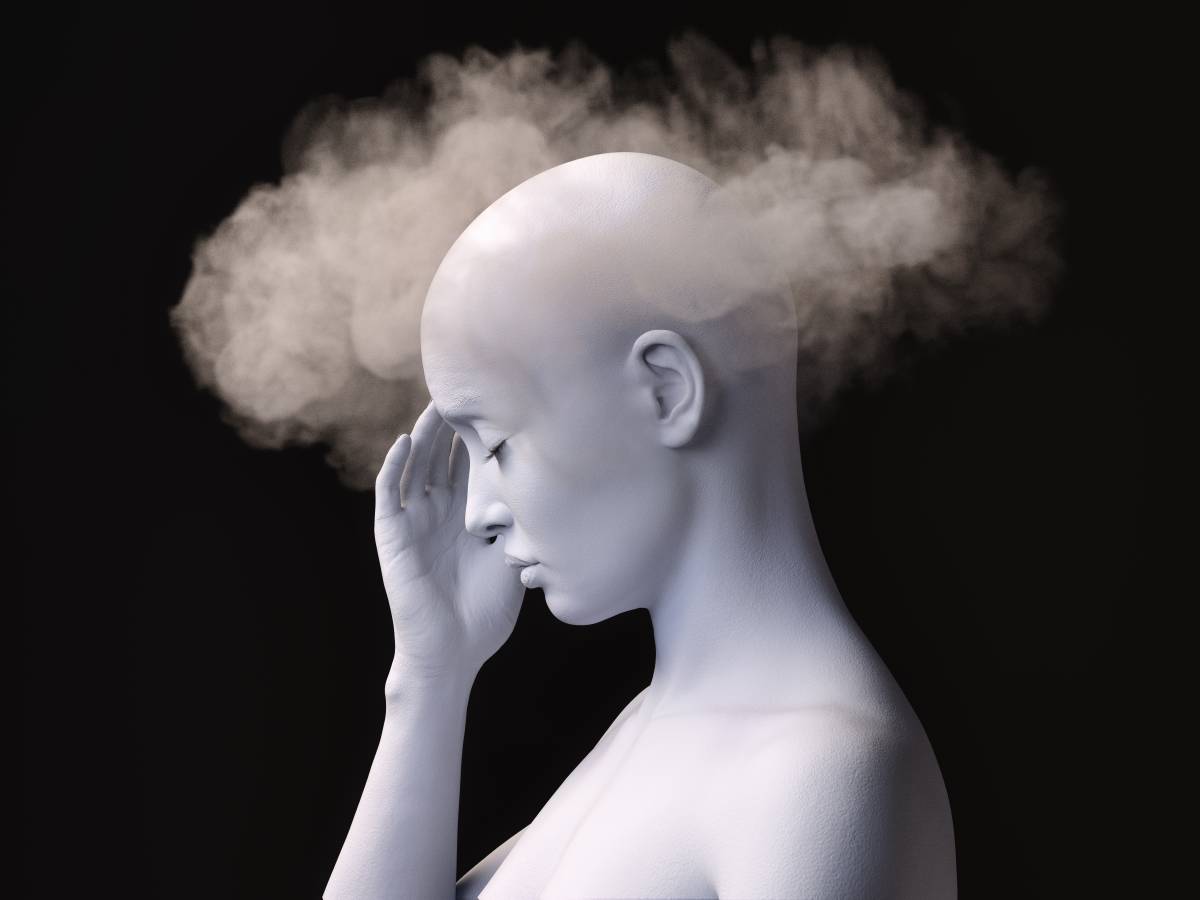Healthcare units need support to deal with neurological and psychiatric illnesses linked to Covid-19
Healthcare centres should receive extra support to enable them to cope with a rise in the number of people who will develop neurological and mental health conditions linked to Covid-19 infections. That is one of the suggestions made by researchers in a paper published today (18 August) in The Lancet Psychiatry. They argue that new cases are likely to occur for a considerable time after the pandemic has subsided, and that the risks remain for up to two years.
Their study, which is based on data linked to more than 1.25 million people diagnosed with Covid-19, suggests there is an elevated risk of developing conditions, such as psychosis, dementia, ‘brain fog’ and seizures, and that the risks are greater than those associated with other respiratory infections.
Paul Harrison, the study’s lead author who is based at the University of Oxford, said: ‘In addition to confirming previous findings that Covid-19 can increase the risk for some neurological and psychiatric conditions in the first six months after infection, this study suggests that some of these increased risks can last for at least two years.'

Treatment options need to be informed by more research
Professor Harrison said the results had ‘important implications’ for patients and health services as new cases of neurological conditions linked to Covid-19 infection were likely to occur for a ‘considerable time’. ‘Our work also highlights the need for more research to understand why this happens after Covid-19, and what can be done to prevent or treat these conditions.’
The research team analysed data on 14 neurological and psychiatric diagnoses gathered from electronic health records, mostly of which were gathered in the US, over a two-year period. Of those with health records in the US-based TriNetX network, 1,284,437 people had a confirmed SARS-CoV-2 infection on or after January 20, 2020 and were included in the study: 185,748 children (aged under 18 years), 856,588 adults aged from 18 to 64 years, and 242,101 adults over 65. These individuals were matched to an equal number of patients with another respiratory infection to act as a control group.
Records from Covid-19 patients infected during different pandemic waves were also compared to investigate differences in the impact of the alpha, delta, and omicron variants on the risk of neurological and psychiatric diagnoses. People who had a first diagnosis of Covid-19 within the period when a particular variant was dominant (alpha: 47,675 people, delta: 44,835 people, omicron: 39,845 people) were compared with a control group of the same number of individuals who had a first diagnosis of Covid-19 in the period just before the emergence of that variant.
The study found that, in adults, the risk of having a depression or anxiety diagnosis initially increased post SARS-CoV-2 infection but returned to the same as with other respiratory infections after a relatively short time (depression at 43 days, anxiety at 58 days.)
'Brain fog' an issue
However, the risk of diagnosis of some other neurological and mental health conditions was still higher after contracting Covid-19 than for other respiratory infections at the end of the two-year follow-up. Adults aged from 18 to 64 who had Covid-19 up to two years previously had a higher risk of cognitive deficit, or ‘brain fog’ (640 cases per 10,000 people), and muscle disease (44 cases per 10,000), compared to those who had other respiratory infections up to two years previously (550 cases per 10,000 people of ‘brain fog’ and 32 cases per 10,000 of muscle disease).
In adults aged 65 and over who had Covid-19 up to two years previously, there was a higher occurrence of ‘brain fog’ (1,540 cases per 10,000 people), dementia (450 cases per 10,000 people) and psychotic disorder (85 cases per 10,000 people) compared to those who previously had a different respiratory infection (1,230 cases per 10,000 for ‘brain fog’, 330 cases per 10,000 for dementia and 60 cases per 10,000 for psychotic disorder.)
The likelihood of most neurological and psychiatric diagnoses after Covid-19 was lower in children than in adults, and they were not at greater risk of anxiety or depression than children who had other respiratory infections.
In addition to confirming previous findings that Covid-19 can increase the risk for some neurological and psychiatric conditions in the first six months after infection, this study suggests that some of these increased risks can last for at least two years [Paul Harrison]
'Burden' on healthcare systems may persist
Max Taquet, who is also based at the University of Oxford, led the analyses. He said: ‘The emergence of the delta variant was associated with an increase in risk for several conditions; however, it’s important to note that the overall risk of these conditions is still low.'
Dr Taquet added: 'With omicron as the dominant variant, although we see much milder symptoms directly after infection, similar rates of neurological and psychiatric diagnoses are observed as with delta, suggesting that the burden on the healthcare system may continue even with variants that are less severe in other respects.’
The researchers suggest the findings should inform policies on healthcare clinics and public health. Healthcare units should be supported to diagnose and treat these neurological and mental health conditions since new cases are likely to occur for a considerable time after the pandemic has subsided.
Writing in a linked comment, Dr Jonathan Rogers and Professor Glyn Lewis from University College London, who were not involved in the study, noted: ‘As we emerge from the acute phase of the pandemic, it is critical to understand whether the ensuing risks for disabilities are transient or persistent.’
To see the full version of the article, visit: https://www.thelancet.com/journals/lanpsy/article/PIIS2215-0366(22)00260-7/fulltext
Author: Ian A McMillanShare it with














